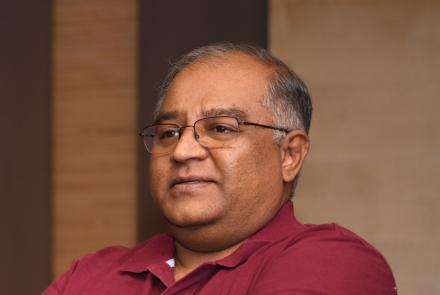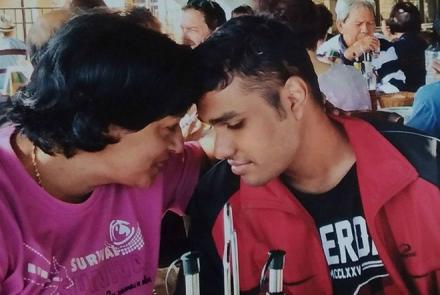
Dr Pradnya Gadgil, Consultant Paediatric Neurology and Complex Epilepsy explains the causes and complexities of childhood epilepsy, how it differs from adult epilepsy, the relationship of seizures with sleep and more.
What is childhood epilepsy? How does it differ from epilepsy in adults?
Epilepsy is a tendency to experience recurrent seizures- without a specific trigger. For example, seizures people experience after a head injury or with low sugar/ low calcium (in babies) do not constitute epilepsy. In epilepsy, seizures occur suddenly- out of the blue- when everything else is seemingly well.
Epileptic seizures can start at any age. In fact, early childhood and adolescence are age group hot spots for epilepsy incidence. The frequency and type of seizures differs in different types of epilepsy.
हिंदी में पढ़ें: बच्चों में सीज़र और एपिलेप्सी- मिर्गी रोग: माता-पिता को क्या जानना चाहिए
There are 3 main differences between adult epilepsy and paediatric epilepsy:
- The type of seizures experienced in childhood are of many different types- this variety isn’t seen as commonly in adult epilepsy. In fact, some types of epilepsy and seizures are exclusively seen in certain paediatric age groups.
- Cause of the epilepsy: Brain injury that has happened around the time of birth is a major contributing cause to childhood epilepsy in developing countries. Other major cause is genetic. Genetic epilepsies are also seen in adults but much less frequently. Genes that contribute to childhood vs adult onset epilepsy tend to be different.
- An even more important difference is the paediatric brain is an ever evolving substrate unlike the adult brain. It is brain which is still maturing and transforming.
These differences are critical. They affect the management of epilepsy significantly: right from the type of medications used and how well they are tolerated to monitoring not only seizures but the child’s development too. Developmental outcomes are as important as seizure freedom rates.
Seizures are classified as focal and generalised. Can you explain the difference between the two?
Seizures, loosely explained, occur because of electric circuits firing wrongly in the brain. Seizures are the clinical or the outward reflection of the electric circuit that’s abnormally activated inside the brain.
Focal seizures are the ones where this electrical circuit involves only a part of the brain – typically a localised part. Hence patients often retain part or full consciousness during focal seizures. They are aware of the seizure happening and can later recount whole/ parts of the event.
Generalised seizures are the ones where the abnormal electric circuits cover large areas of the brain on both sides. Typically, patients lose consciousness during generalised seizures, are not aware that it is happening to them and have no memory of the event later.
What are possible and most common causes of epilepsy in India? How important is it to find the cause?
In India, the commonest cause of epilepsy is epilepsy that results from brain injury. This brain injury is typically acquired around the time of birth. It could be due to lack of oxygen or a brain infection or low blood sugars. This brain injury also can cause developmental delays.
The second commonest cause of epilepsy in India is genetic. Epilepsy genetics has advanced significantly in the last few years. Many genes which cause childhood epilepsy have been identified.
Other causes of epilepsy in childhood include malformations of the brain, scars post late childhood infections such as tuberculosis/ neurocysticercosis, rare vitamin responsive epilepsies, rare childhood degenerative/ metabolic neurological conditions, et cetera.
Choice of treatment and expected outcome is mainly dictated by the underlying cause of the epilepsy.
For example a type of epilepsy syndrome called West Syndrome that’s often seen following perinatal brain injury has a grim outcome: the seizures can be incredibly difficult to control and the development could also be significantly affected.
On the other hand, an epilepsy syndrome called Childhood Absence Epilepsy occurs because of an underlying genetic tendency. An overwhelming majority of kids easily achieve seizure freedom with the development hardly being affected - eventually the medication can be stopped.
In epilepsies caused by cortical malformation, option of epilepsy surgery will be explored earlier ideally aiming at a cure.
These examples illustrate how the underlying cause of the epilepsy influences treatment choices and sets expectations. It also guides offering supportive treatments for allied issues like developmental delay/ learning problems etc. However the cause can be elusive – especially genetic- as tests are not yet comprehensive and are quite expensive. A definitive diagnosis of the underlying cause- at least a working hypothesis regarding the cause - is crucial to manage childhood epilepsy adequately.
What are the symptoms that parents should watch out for?
The look of seizures can be very varied. They can happen in sleep or in awake. These range from the child looking just absent to a baby looking like he or she is just startled to a typical event with significant shaking of the whole body with frothing of saliva from the mouth and eyes being up rolled.
Though the look of the seizure can be different in different epilepsies- it is typically consistent in a patient. The indication to seek urgent medical attention is very similar looking events occurring twice, thrice or more often in a particular child.
What does diagnosis entail? Why is early diagnosis helpful?
The diagnosis of epilepsy is crucially made by what we call the clinical history i.e. the story of the events/ neurological background/ examination. An eyewitness account of the events in question is incredibly important. Nowadays the widespread use of smartphones can help acquire home videos to film the events in question.
If the clinical history is suggestive of seizures then we often ask for an EEG, a few blood tests later sometimes a brain scan(CT or MRI) and/ or genetic tests.
Early diagnosis is important – this fact is quite intuitive. Early diagnosis means that the epilepsy can be controlled as soon as possible. This has significant effects with respect to outcomes especially in severe epilepsies such as West’s syndrome. It also has significant implications with respect to patient safety. Needless to say, controlling the seizures (and trying to improve the EEG in certain cases where EEG is very abnormal) as early as possible can have big positive impact on the long term developmental outcomes.
What are the typical treatment options? When is a patient recommended surgery?
The first treatment of choice is anti-epilepsy medications. There are many medicines available which are efficient in controlling seizures. The newer medicines are also very well tolerated with chances of serious side-effects being very rare. In fact, in 70 to 80% of patients the epilepsy can be fully controlled with anti-epilepsy medications. Sometimes some patients need two or three medications in combination to control their epilepsy. Some patients need medications for a few years whilst others need it much more long term.
However in a subset of patients, epilepsy cannot be controlled by anti-epilepsy medications. Within these, is a group of patients who have what we call “surgically remediable Epilepsy”. These are patients whose epilepsy is caused by malformations of the brain or benign tumors – surgical removal has the potential of a cure from epilepsy. It is important that this subset of patients is identified as soon as possible after the onset of epilepsy so that Epilepsy Surgery can be offered to them early – the sooner the better.
Patients who are deemed to be surgically remediable undergo a battery of tests called pre-surgical evaluation. These tests include a Video EEG which records and characterizes seizures in great detail, special Brain scans (MRI, PET, SPECT), etc. Epilepsy Surgery is offered only to those patients where the pre-surgical evaluation shows us that the patient will be benefited by it. Modern day epilepsy surgery is highly evolved-can be done in any age, can be done in stages, can be done with the patient awake during surgery if needed! These advances have made paediatric epilepsy surgery safer and more effective. In fact early epilepsy surgery is thought to have huge impact on long term development in patients with severe epilepsies.
What is the association of sleep and seizures?
Some patients have an epilepsy in which seizures occur only in sleep. Typically in most epilepsies, sleep deprivation can trigger a seizure, even in patients who are adequately controlled on medications. Keeping this in mind, it’s important to maintain good sleep hygiene.
What is the role of psychosocial support for patients and their parents? Do we have such services?
Epilepsy is a disease with a lot of stigma attached to it. Hence there are significant misunderstandings and misinformation around it. This lack of social acceptance makes life of patients and their families with epilepsy very difficult. It hinders seeking timely treatment; it stops them from discussing the disease openly with the extended family and friends. This can cause problems at multiple levels- for example, first-aid is not done or done incorrectly which directly affects patient safety. It leads to a life wherein children are overprotected and hence deprived of typical social experiences whilst growing up – for example missing out on picnics, sleep overs, etc. The child inadvertently grows up thinking ‘I am different – there is something wrong with me’. It eventually contributes to lack of self-esteem and self confidence.
There are some avenues for psychosocial support in India. Most epilepsy doctors will have a clinical psychologist who can offer immediate support to the patient and the family if needed. There are NGOs which offer psychosocial support in the form of epilepsy support group activities. I am part of Samman, the Mumbai branch of Indian Epilepsy Association which regularly conducts Epilepsy support group meetings, one-on-one counselling sessions apart from conducting free medical camps/ free medicines for unaffording patients. The epilepsy support group meetings are crucial because they offer a sense of belonging to patients and families when they meet others with similar experiences. They also offer a unique opportunity to come together to effect a social change.
Do you recommend the ketogenic diet? Has it proven to be effective? If yes, how so?
Ketogenic diet is proven to be effective in some patients with epilepsy. The mechanism of action is unknown. It is particularly effective in epilepsies caused by genetic defect which leads to poor supply of glucose to the brain. It is also very effective in patients with some severe epilepsies which are not responding to medication and are not surgically remediable.
Ketogenic diet for epilepsy is a very precise diet- to be done ONLY under the supervision and guidance of an experienced medical and dietician team.
What is your advice to parents regarding management of seizures at home?
Do not panic. Most seizures are self limiting. Make yourself familiar with the correct first aid. Sometimes your doctor might advise a first aid nasal spray- use it only as advised. Have a clear understanding of when to seek urgent medical attention in a seizure- it is not necessary always and in all seizure types.
Educate every adult who takes responsibility of the child in first aid. For eg teachers/ nannies/ grandparents. Ensure the first aid is also written down in a format that’s easily accessible.
Please do not let epilepsy affect every part of your family's life. Remember children with epilepsy can lead a normal life.
Dr Pradnya Gadgil
Consultant Paediatric Neurology and Complex Epilepsy,
Director of Tuberous Sclerosis Clinic
Kokilaben Dhirubhai Ambani Hospital, Mumbai
















